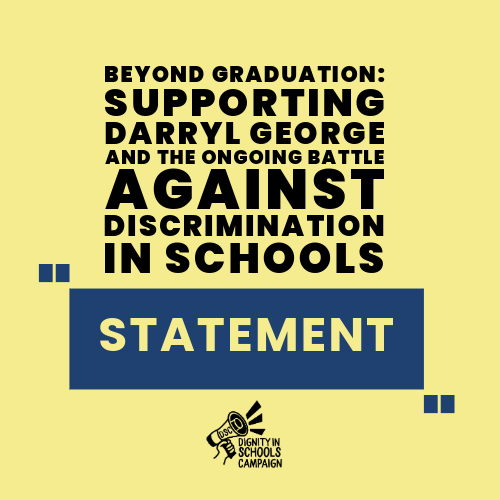You can watch a live stream of the oral argument at this link: https://www.youtube.com/@texasfirstcourtofappeals2725/streams.
Stream begins at 1:30
Darryl George will be in court today. The Barbers Hill Independent School District (BHISD) filed a motion to dismiss George’s state-level case against them, arguing that since he’s graduated, the damages have since ceased and thus his case need no longer continue. The Dignity in schools Campaign disagrees with their assessment. We believe It’s a bad-faith argument that only furthers the discrimination against Black people, Black hair and Black culture that the district claims to abhor. Black students will continue to matriculate through BHISD, as even Darryl’s case is not the first or second instance of Black students in conflict with the school over dress code violations. Under the guise of ‘career readiness’ (in this economy?) and “high expectations”, Barber’s Hill High School and Darryl made national headlines during the 2023-2024 school year when he was subject to a deluge of disciplinary actions and in-school suspensions as the school staff, the school district and state of Texas violated Darryl’s rights through its violation of the CROWN Act, which bans race-based hair discrimination. His dreadlocks were determined to be a violation of the Barbers Hill Independent School District’s dress code which curiously posits that “Male students’ hair will not extend, at any time, below the eyebrows or below the ear lobes. Male students’ hair must not extend below the top of a t-shirt collar or be gathered or worn in a style that would allow the hair to extend below the top of a t-shirt collar, below the eyebrows, or below the ear lobes when let down.” A federal judge has recently dismissed the case, ruling in favor of the District.
Darryl’s case makes clear — whether the district or their lawyers realize it, or care or, not — that terms and descriptors like ‘high expectations” and “career readiness” have long functioned as codewords and euphemisms for Black, Indigenous, and/or non-white people generally who are, presumably, devoid the capacity for having any worthwhile expectations, and thus need to be ‘cleansed’, or ‘educated’ out of the ‘scrooge’ of ‘low’ expectations. Apparently, in districts like this one in Texas, hair length is a probable symptom. Black and Brown communities know this tactic well and accurately describe it as racist and discriminatory. As author and activist Keeanga-Yamahtta Taylor states in her 2019 book ‘Race for Profit’ “The absence of race talk did not, however, mean the absence of coded racial incitement. “Low-income,” “urban,” and “poor” all stood in for Black people.” Case in point: A 2024 CBS article states that the [Barbers Hill School] district defends its dress code, saying its policies for students are meant to “teach grooming and hygiene, instill discipline, prevent disruption, avoid safety hazards and teach respect for authority.”
These statements only raise more questions. Authority for who? Discipline for what? What rights to respect are students, and the communities they come out of, owed? Whose cultural practices ensure ‘proper grooming’ is met and whose don’t? Who gets to determine that? What many who share the views of BHISD’s dress code refuse to consider is that the path to community development, educational excellence and general student success are built through trust and mutual understanding, not through codifying eurocentric aesthetic sensibilities as normal, and criminalizing anyone who doesn’t or refuses to adhere to cultural alienation.
At Dignity in Schools, we advance the position and practice that, “All students should have a right to express themselves fully in school through choosing clothing, hair styles, jewelry and accessories that appropriately represent and affirm their varied identities, without the threat of punishment, removal, criminalization or harassment. Schools should be safe and affirming spaces for all students.” Further, our Model Code on Education and Dignity says that “States, districts and schools should never prohibit clothing, hairstyles, jewelry or other accessories that deny or criminalize racial, ethnic or religious culture or expression, or would lead to the targeting of particular students. Codes must be assessed to remove any language or policies that imply that clothing, hairstyles, jewelry or other accessories that are associated with particular cultures are improper, unprofessional or distracting.”
We stand in solidarity with Darryl, his family and his legal team’s request to dismiss the motion to dismiss the appeal.


